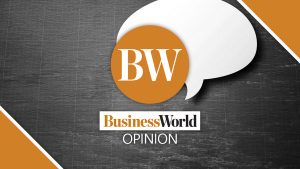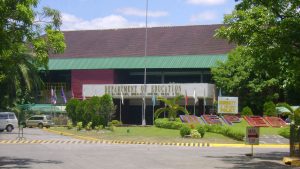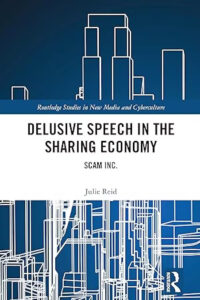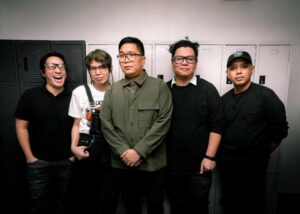In an era defined by complex global challenges — climate change, migration, democratic backsliding, and technological upheaval — the world needs visionary leadership more than ever. Yet at the very moment when international cooperation and skilled public leadership are most needed, America is turning its back on one of its greatest soft power assets: higher education. Nowhere is this more evident — or more troubling — than in the Trump-era immigration restrictions targeting international students.
For decades, the United States has cultivated global leadership through elite programs such as the Edward S. Mason Fellowship at Harvard Kennedy School (HKS). Designed for mid-career public servants from the Global South, the Mason Program is a crown jewel in America’s public diplomacy. It has quietly trained presidents, ministers, diplomats, and change-makers from over 130 countries — leaders who return home not only better equipped to serve, but with a deep understanding and appreciation of American values.
As a disclosure, this writer had the privilege of joining this program in the late 1990s and modesty aside, the learnings from the program mattered a lot in my public service career in small business assistance and development banking. I had the opportunity to take courses at both the Harvard Business School and the Massachusetts Institute of Technology. But my case is a minor one compared to other illustrious graduates.
I had as a classmate former Tourism and Interior and Local Government Secretary Rafael Alunan who continues his advocacies beyond government service. Another DILG secretary was former Naga Mayor Jesse Robredo who enriched his approach to governance and was a Ramon Magsaysay Awardee for Government Service. Patricia Sto. Tomas was Secretary of Labor and Civil Service Commission Chair who championed labor rights and strengthening of the bureaucracy. Former DSWD Secretary Corazon Dinky Soliman spearheaded significant programs aimed at poverty reduction and social protection. Comebacking senator Francis Pangilinan is an advocate for food security and education. I can go on about active Filipino HKS Alumni today but space will not be sufficient. Let me add from Asia, Tharman Shanmugaratnam, Singapore’s ninth President and past deputy prime minister and finance minister.
The Mason Fellowship exemplifies the transformative power of international education. Take Ellen Johnson Sirleaf, the first female president of Liberia and a Nobel Peace Prize laureate. A Mason Fellow in the 1970s, she returned to lead her country out of civil war and rebuild democratic institutions. Or Felipe Calderón, who as president of Mexico launched healthcare reforms and championed environmental sustainability. Or Luis Alberto Moreno, who as head of the Inter-American Development Bank helped steer billions in infrastructure investment across Latin America. These are not just alumni — they are living proof of what a year at Harvard, surrounded by peers from every corner of the globe, can unleash.
The genius of the Mason Program lies not just in the curriculum — although that is world-class — but in the connections it fosters. Fellows learn from each other, forge cross-border alliances, and share best practices that often become blueprints for reform back home. In the Philippines, institutional reform and inclusive growth remain perennial challenges for which the Mason Program can provide academic insights and exposure to policy innovation. It’s a win-win proposition: countries benefit from more capable leadership, and the US earns decades of goodwill, influence, and moral leadership.
When the Trump administration threatened to ban international students attending online classes during the COVID-19 pandemic, it sent shockwaves through the global academic community. Although the policy was reversed under pressure, the damage was done. The message was clear: international students, even the best and brightest, were not a priority. This retreat has dangerous implications for both America’s standing in the world and the future of global development.
But what happens when these pathways to better education are blocked and when promising young reformers in the Philippines, Nairobi, Islamabad, or La Paz are denied visas or discouraged from applying in the first place?
We get a world where the US is sidelined in global conversations. America loses its edge in development diplomacy. And worst of all, we leave a vacuum that authoritarian powers are all too eager to fill.
The restrictions of the earlier Trump years revealed just how fragile the bridge between American institutions and global talent can be. Though President Biden’s administration has taken steps to repair the damage, the uncertainty lingers. Enrollment from developing countries has not yet fully recovered, and many students are now looking to countries like Canada, the UK, or Germany — places that actively court global talent with clear, welcoming policies.
The lesson is simple: leadership is not born in isolation. It is cultivated, challenged, and sharpened in diverse, dynamic settings like Harvard Kennedy School. Programs like the Mason Fellowship are not acts of charity — they are investments in a more stable, prosperous, and democratic world.
If the US wants to lead that world, it must start by opening its doors again. As Yurong Jiang, MPA ’25, said in her graduation address, “we are bound by something deeper than belief: our shared humanity.”
The views expressed herein are his own and do not necessarily reflect the opinion of his office as well as FINEX.
Benel Dela Paz Lagua was previously EVP and chief development officer at the Development Bank of the Philippines. He is an active FINEX member and an advocate of risk-based lending for SMEs. Today, he is independent director in progressive banks and in some NGOs.






